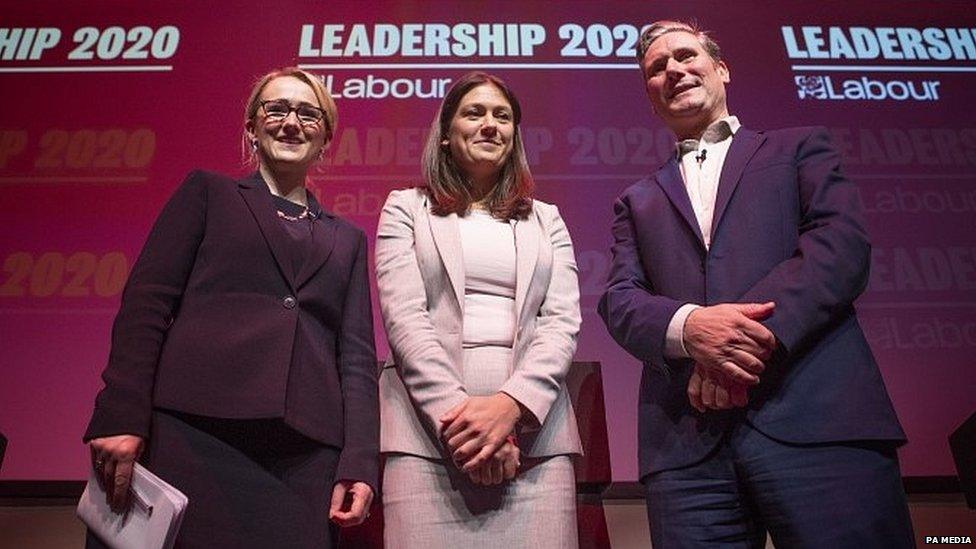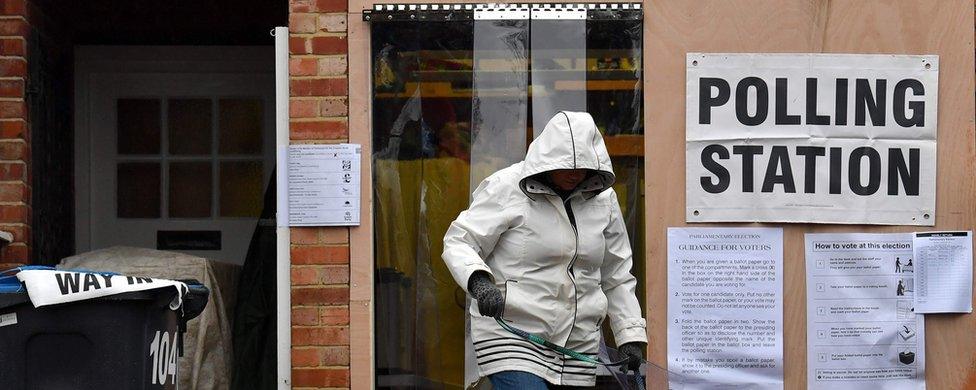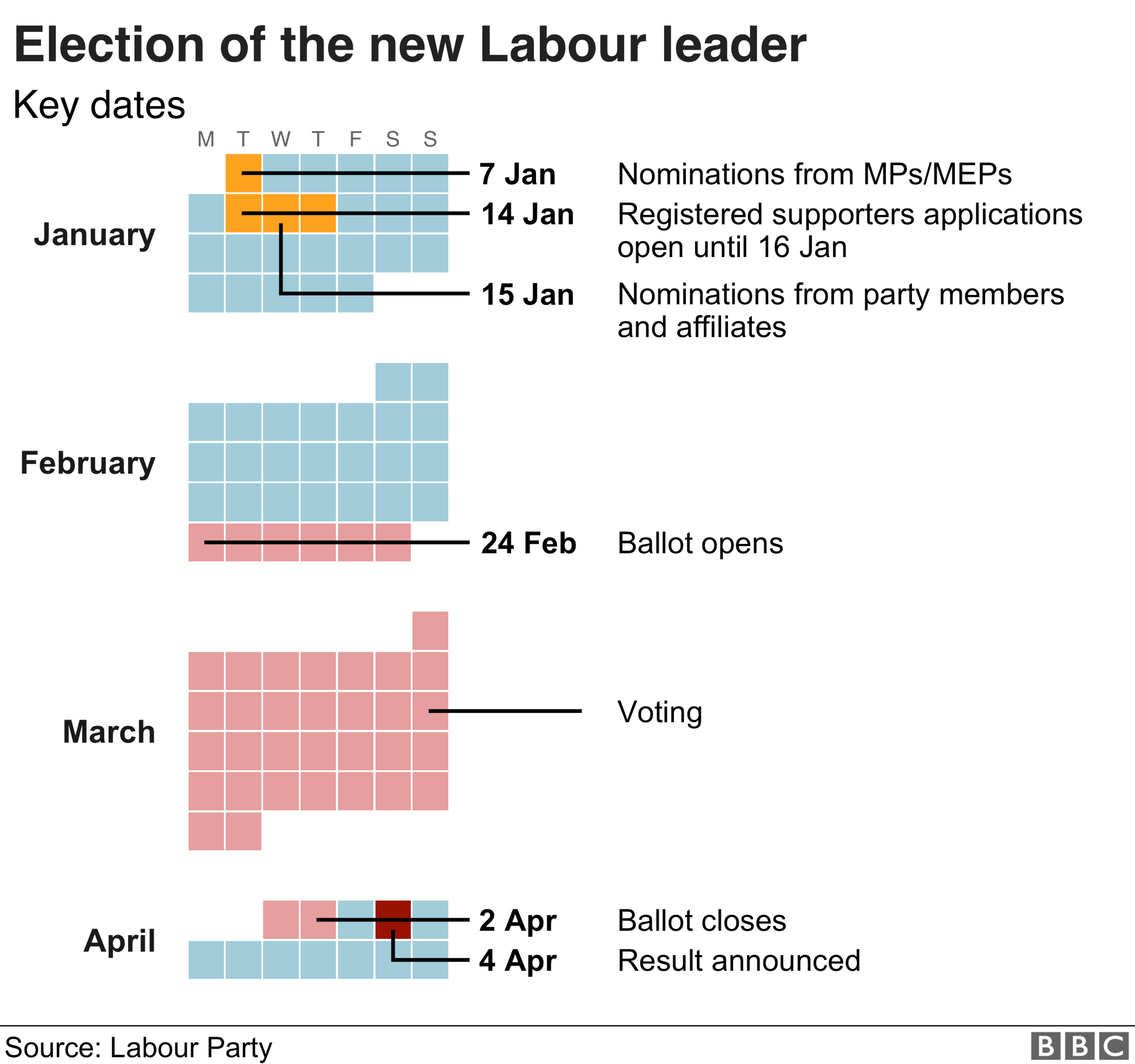Labour: Party 'braced for losses' in May's council elections
- Published
- comments

The May polls will be the first electoral test of Labour's new leader
The challenge facing Labour's next leader has been laid bare by internal research suggesting the party is facing "one of its worst" results in recent history in May's local elections.
An internal party document, passed to the BBC, says it should brace itself for the loss of councils including Plymouth, Amber Valley and Harlow.
In a worst-case scenario, Labour risks losing 315 seats and control of historic strongholds such as Sheffield.
Voters go to the polls on 7 May.
Seats in about 118 councils in England will be up for grabs.
Mr Corbyn's successor as Labour leader will be announced on 4 April, leaving them with barely a month to lead the party into its most significant electoral test since December's general election defeat.
The challenge facing whichever of Sir Keir Starmer, Rebecca Long-Bailey or Lisa Nandy wins the contest is laid bare in an internal party document based on research from Labour's Targeting and Analysis team.
It says the party is facing "one of our worst local election performances in recent history" in England and should brace itself for the loss of "hard working councillors" across the country.
The document examines three different scenarios, based on varying polling methods - and taking into account Labour's general election performance.
These suggest the so-called Red Wall, breached so spectacularly by the Conservatives in December's general election, is continuing to crumble in some areas.

Where are local elections taking place?

Seats are up for grabs in around 118 English local councils on 7 May, including in newly-created unitary authorities in Buckinghamshire and Northamptonshire.
All councillors are up for re-election in a number of Labour-controlled councils, including Rotherham, Salford and Bristol.
Voters will also be able to elect a third of councillors in 33 metropolitan boroughs and 51 non-metropolitan district councils.
They will also elect a third of councillors in 15 unitary authorities, including areas like Plymouth, Southampton, Hull and Slough where Labour are in charge.
Elections for 36 Police and Crime Commissioners and eight directly elected mayors - including in London - will take place on the same day.

In every scenario, Labour would lose control of Plymouth, Harlow in Essex, Amber Valley in Derbyshire and West Lancashire. In two scenarios Southampton would be lost and in the worst-case scenario, the bastion of Sheffield, held by Labour for most of the last 75 years, would also fall.
In this scenario, Labour would lose control of another nine councils, with 315 councillors across England losing their seats.
Only Wirral, where Labour is currently running a minority administration, and Burnley, where Labour is already the largest party in a "hung" council, are listed as possible gains.
The document suggests that the situation could be even worse as the party's polling hasn't taken into account the recent Conservative poll "bounce" but it adds that it can not yet estimate the effect of a change of leadership on the election results.
To state the obvious, that leader will have their work cut out.
A Labour Party spokesperson said: "We recognise the scale of the challenge we face on May 7th and we will be fighting for every vote in the local elections."

